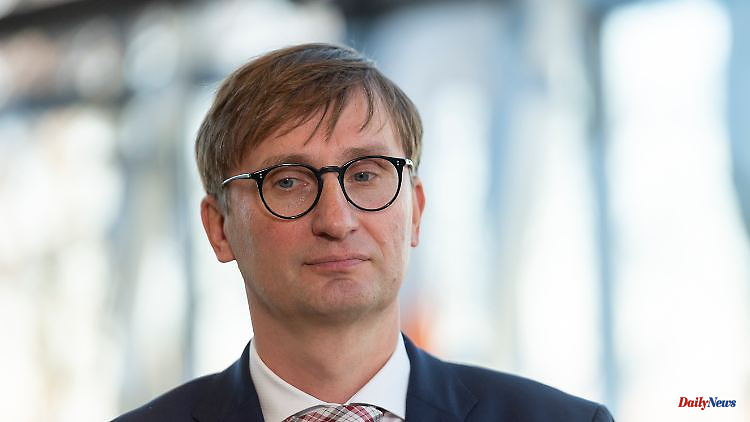Military historian Sönke Neitzel sees the turning point in military policy announced by Chancellor Olaf Scholz as being in danger. In Markus Lanz's talk show, the scientist calls for a European military strategy and a renewal of the Bundeswehr.
In view of the current and future crises in the world, the military historian Sönke Neitzel calls for a rethinking of defense policy. "There is a complete lack of an overall European strategy," criticized the scientist on Tuesday evening on the ZDF talk show "Markus Lanz". "We have been talking for years about the fact that the Europeans have to work more closely together in the field of armaments." The European countries would have to ask themselves whether there should be a common military air armament industry. Europe does not manage to build a joint company like Airbus in this area. "It is not possible to agree on this in Europe," said Neitzel.
Neitzel, who teaches at the University of Potsdam and is the only professor of military history in Germany, sees another problem: Germany is the only country in Europe where people think post-nationally. According to Neitzel, national thinking prevails in all other European countries. Nevertheless, an initiative for a pan-European defense policy is important, even if it could ultimately fail.
At the same time, Neitzel called for a rethink of German defense policy. The idea of alliance defense was abandoned in 2001. Since then, the Bundeswehr has been responsible for police-like operations inside. "The Ministry of Defense was run as a civilian ministry. The military argument was no longer needed, they thought they would never have to fight again. That's why, for example, they ran out of ammunition," explained Neitzel.
Now the situation has changed. "After the Russian invasion of Ukraine, we realized that we were broke." It is necessary to convert the entire system to speed. That means: quickly build ammunition and armaments. "But the administration isn't there for that, the whole mindset is missing," says Neitzel. Nonetheless, we must move forward quickly. Just being able to defend yourself in twenty years' time is not enough. "We need a Bundeswehr capable of fighting," said Neitzel.
The generals have recognized the signs of the times, he believes. "But I believe that we are in the process of driving this turning point in security policy against the wall with karacho, because the state is once again getting in its own way." The planning procedures take too long, and there is no such thing as an emergency committee.
Finally, according to Neitzel, the structures of the Bundeswehr would also have to be revised, some of which date back to the Cold War. "We have to rethink efficiency here," said the scientist. "Only the Chancellor can do that, only the cabinet can do that. And we need people here who can handle the crisis. And that's where we have a problem."
He himself knows that Neitzel's proposals will be difficult to implement. "In times like this, you can fail miserably," he said, "but as Chancellor you can also show: special times, special people."












